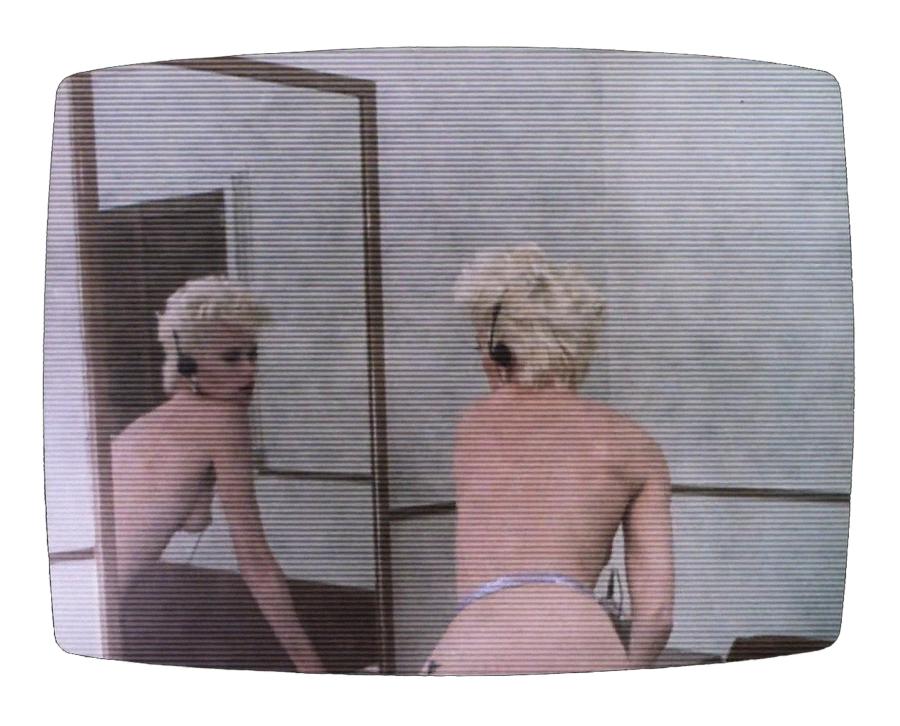Modern european cuisine
Eva Gold Slow Dance
Eva Gold Slow Dance
Works that draw you in only to repel you, almost afraid of the power they possess, are Eva Gold’s springboard into wider debates within modern sexual politics. To a conversation where moral panic and a punitive culture have become intertwined with a suspicion of established power structures, she offers something that feels both personal and ambiguous. In doing so, Gold harnesses a mood of emptiness that feels distinctly current. A sense of ambivalence recalls the words of Maggie Nelson in The Argonauts, in which she asserts the need for queerness to be “insistently in-between”: not so much a state of liminality, which would imply a defined end goal, but rather one of constant exchange. Accordingly, as the show’s title suggests, we are invited to slow dance between and around conflicting feelings, caught in a state of limbo, where it is uncertain as to who is leading and who is being led.
The title work of the exhibition, a small drawing of a frame from the 1984 cult movie Body Double, depicts a woman dancing for the camera in an adult film on a late night TV channel. This meticulous reproduction points to the weight that such images can hold in our expectations and desires. Elsewhere in the show, objects that have been painstakingly reproduced sit side by side with others that have been found or discarded. Throughout the exhibition, charged images appear to inform the sculptures on show as much as relations or embodied scenarios do, embedded into our consciousness and nurtured by our imaginations.
Gold’s enduring interest in the porosity between fictional and non-fictional narratives, manifests here as a nod to popular imagery. She takes inspiration from seedy spaces such as motels, sex shops and back rooms that dot the urban environment, and which have long featured in cinema. These environments straddle aspects of the transient non-place and the domestic, while retaining a state of ubiquity and blankness. What takes place within them is equally subject to things in-between—identities, and perhaps even ethics, are suspended in favour of anonymous, sordid exchanges. Within the most quotidian settings, a heightened reality is achieved.
Through a show whose components feel less tied to a physical realm than a psychological one, and where fiction is not a means of escape but a structuring tool, Gold gives us something that feels haunted, but by living phantoms. An absence of a physical human presence contends with signs of sex and violence, a multitude of images layered within our subconscious, echoing Baudrillard’s concerns of the hyperreal: a model of the real without origin or a basis in reality.
In evoking a feeling of sifting through distant memories, personal or otherwise, Gold achieves a sense of introspection by placing the viewer in the position of voyeur. We are invited to parse through these scenes—conceived of here as a psychological warren of rooms within rooms—in an attempt for solid answers. The viewer, at once the impotent observer and the omnipresent surveyor, must contend that these questions are unanswerable, and instead allow their experience to be guided by imagination and buttressed by personal memory. Her unwillingness to provide resolution speaks to the messiness of memory, where the boundaries of fiction and reality can so often be blurred. The past, as Gold contends, can be endlessly revised and manipulated.
But where does this leave us? If we can readily accept our past as subject to revision, how does that change how we navigate our present lives? And does it matter, if our present experiences are already unmoored from reality? Gold pushes us to question the limits of the type of authenticity that we seek from certain spaces and relationships, and then to extrapolate that to wider experiences. There is an irony, is there not, in searching for experiences that speak to truth—ones which feel close to the skin—within spaces that invite a suspension of the quotidian, the linear and often the real?
Of course, as Baudrillard writes, authenticity is as mortal as meaning; while the image, like a memory, lives on forever. The past might be haunted, but it is also something we can control. Our present, less so. And so we too must dance an uneasy dance, in never-ending equilibrium.
Text by Kabir Jhala













